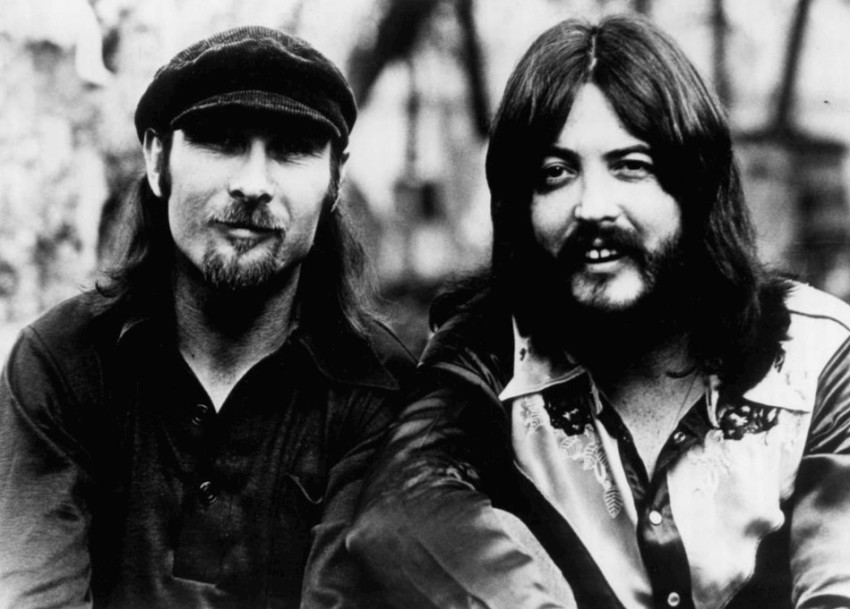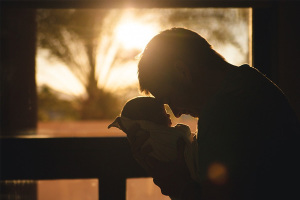Seals and Crofts: Remembering a musical plea for life

This month marks the 46th anniversary of Roe v. Wade, which made abortion-on-demand the law of the land. It also marks the 45th anniversary of what is arguably the most courageous act in pop culture history.
In the early 1970s, the Texas-born duo of Jim Seals and Dash Crofts was at the peak of their popularity. After spending a few years in a band with Glen Campbell, among others, they began to perform under the name “Seals and Croft.”
It took a few years, but eventually they hit it big. Their 1972 album “Summer Breeze” reached number 7 on the Billboard album charts. The 1973 follow-up, “Diamond Girl,” did even better, peaking at number 4. The record company was happy and so were fans. Both were looking forward to what was next from Seals and Croft.
While preparing to record their next album, the wife of one of their recording engineers handed Seals a poem she’d written after watching a documentary on abortion. It opened with the lines “Oh little baby, you’ll never cry, nor will you hear a sweet lullaby.”
Seals set the poem to music and the result was the song “Unborn Child,” which also became the name of their new album.
The song opens gently, but unsparingly depicts the reality of abortion. The unborn child is “a tiny bud that grows in the womb only to be crushed before it can bloom” with an emphasis on the word “crushed.”
To put it mildly, this is not what their label, Warner Records, had in mind. After all, this was less than a year since Roe had been handed down, and abortion was, if nothing else, controversial. Add in the duo’s unapologetic and urgent plea for women contemplating abortion to “stop, think it over…” and it’s no surprise their record label had some concerns.
As Jim Seals later recalled, the label said, “This is a highly controversial subject, we advise that you don’t do this.” To which they replied, “But you’re in the business to make money; we’re doing it to save lives. We don’t care about the money.”
When the album released in early 1974, the label’s fears came true: Radio stations refused to play the title track, and pro-abortion groups picketed Seals and Croft concerts.
As music writer Bill de Young wrote twenty years later, “The critics tore the record to pieces, and Seals and Crofts with it. . . . ‘Unborn Child’ hurt Seals and Crofts’ reputation—it was as if they had crossed that thin line, that sacrosanct divider that separated their music from their religious beliefs.”
About those religious beliefs. Seals and Croft weren’t Christians. They were Baha’is, a religion that originated in 19th-century Persia.
I mention this because in the years since “Unborn Child,” I can’t think of a single mainstream pop song that has taken on the subject of abortion in such a direct and unapologetic fashion. The closest one I can think of is Nick Cannon’s song “Can I Live?”, which wasn’t a hit. In fact, I can only think of one song by a Christian artist, “Killing Thousands”, by 2nd Chapter of Acts.
Wouldn’t it be wonderful if the Christians who’ve “crossed over” into mainstream pop music over the years were as willing to defend what they believe as two Baha’i converts were forty-five years ago?
As Seals and Crofts later said, it’s worth the risk. “I think we got more good results out of it than bad…” Dash Crofts said. “…a lot of people called us and said, ‘We’re naming our children after you, because you helped us decide to save their lives with that song.’ That was very fulfilling to us.”
Please, come to BreakPoint.org, click on this commentary, and I’ll link you to the Seals and Crofts song, “Unborn Child,” as well as the two others I mentioned today. And don’t miss the BreakPoint Podcast this week: first, Scott Klusendorf and I discuss how to answer pro-abortion arguments effectively. And Lila Rose joins me to talk about the state of the pro-life movement. Again, that’s the BreakPoint Podcast at BreakPoint.org—or wherever you listen to podcasts.
Resources
Unborn Child, Seals & Crofts | Warner Bros. | February 1974
Unborn Child at Forty, Stella Morabito | Human Life Review | August 21, 2014
Can I Live? Nick Cannon | July 2005
Killing Thousands Annie Herring | Sparrow Records | 1981
March for Life 2019 website and registration
Originally posted at Breakpoint.



























